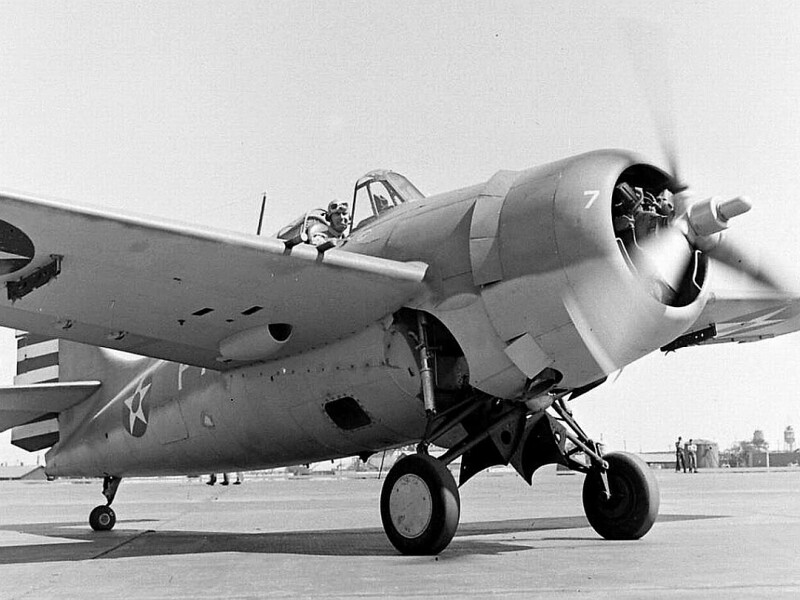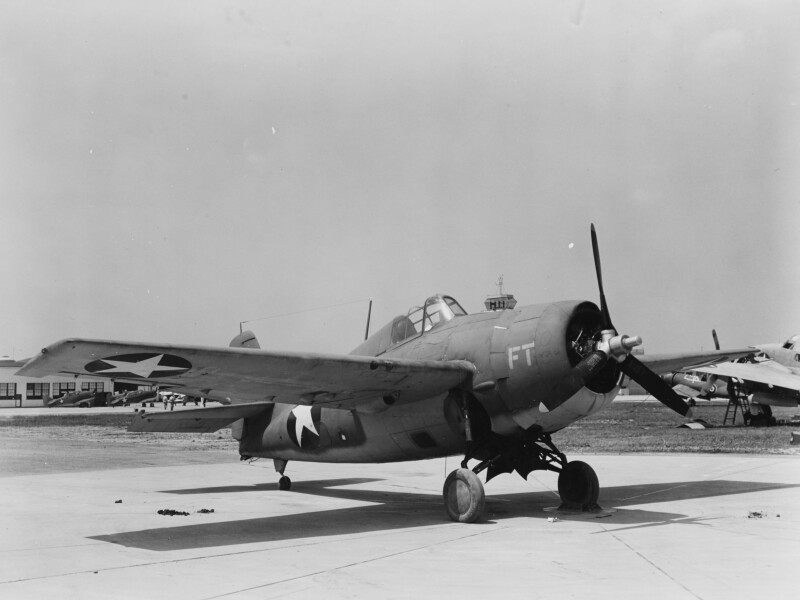-
Library
- Photos
- Documents
-
Geography
- Airfields
- Areas
-
Aviation
- Aircraft
- Engines
-
Weapons
- Guns
- Rockets
- Torpedoes
-
Avionics
- Radio
- Radar
- IFF
- Radar Detectors
- Jammers
- Navigation Devices
-
Unit Database
- Allied Units
- Axis Units
-
Pilot Database
- Pilots
- Victory Claims
- Torpedo Attacks
Grumman F4F Images

F4F-4 Wildcats of VF-41 testing their guns on USS Ranger prior to Operation Torch.
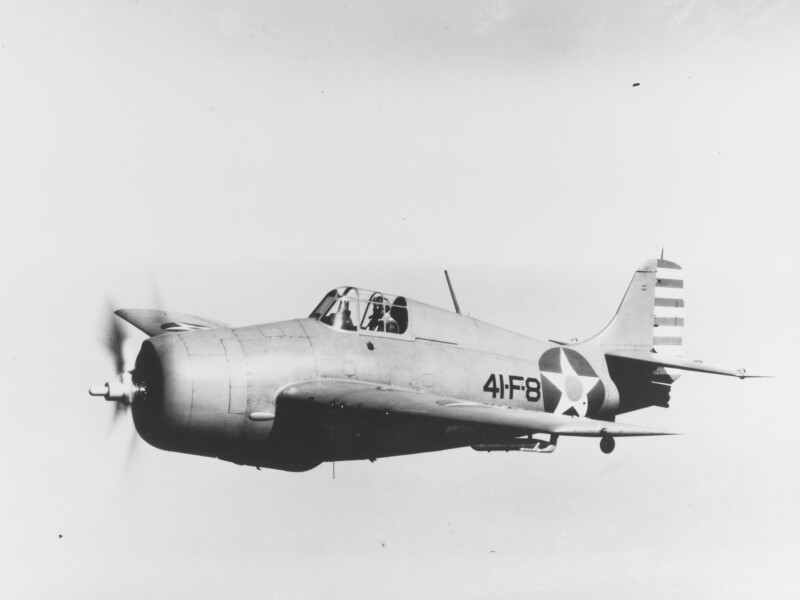
Photo #: 80-G-7026 Grumman F4F-4 Wildcat fighter, of Fighting Squadron 41 (VF-41) In flight, circa early 1942. Official U.S. Navy Photograph, now in the collections of the National Archives.

Photo #: 80-G-7725 Grumman F4F Wildcat fighter Takes off from USS Enterprise (CV-6), while she was operating in the Coral Sea area, 18 May 1942. Official U.S. Navy Photograph, now in the collections of the National Archives.

Photo #: 80-G-10613 Grumman F4F-3 Wildcat fighters, of Fighting Squadron Three (VF-3) In flight near Naval Air Station, Kaneohe, Oahu, Hawaii, 10 April 1942. The planes are Bureau # 3976 (marked F-1), flown by VF-3 Commanding Officer Lieutenant Commander John S. Thach, and Bureau # 3986, flown by Lieutenant Edward H. O'Hare. Both of these aircraft were lost while assigned to Fighting Squadron Two (VF-2) with USS Lexington (CV-2), during the Battle of Coral Sea in May 1942. Photographed by Photographer Second Class H.S. Fawcett. Official U.S. Navy Photograph, now in the collections of the National Archives.
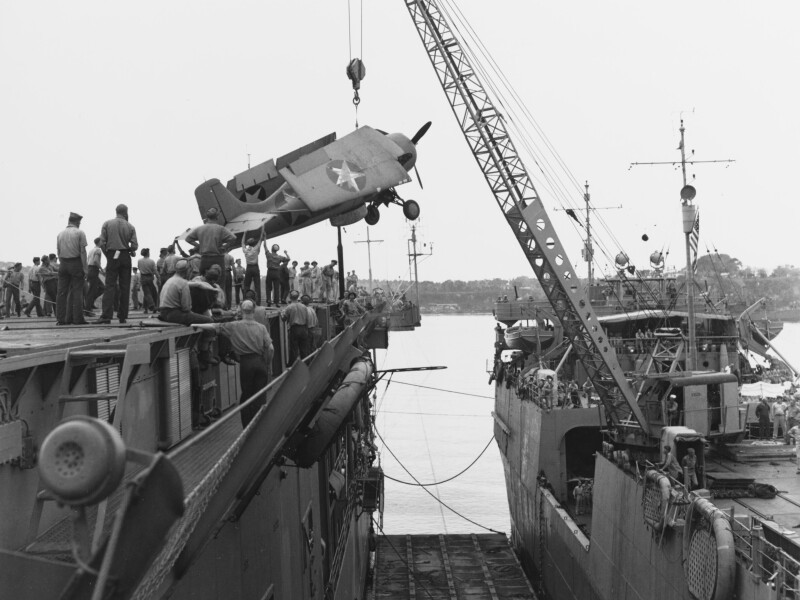
Photo #: 80-G-73394 A Grumman F4F-4 Wildcat fighter Is lifted on board USS Long Island (ACV-1) from USS Kitty Hawk (APV-1), at Fila Harbor, New Hebrides, 28 August 1942. This plane was en route to Guadalcanal as part of the second group of U.S. Marine Corps pl
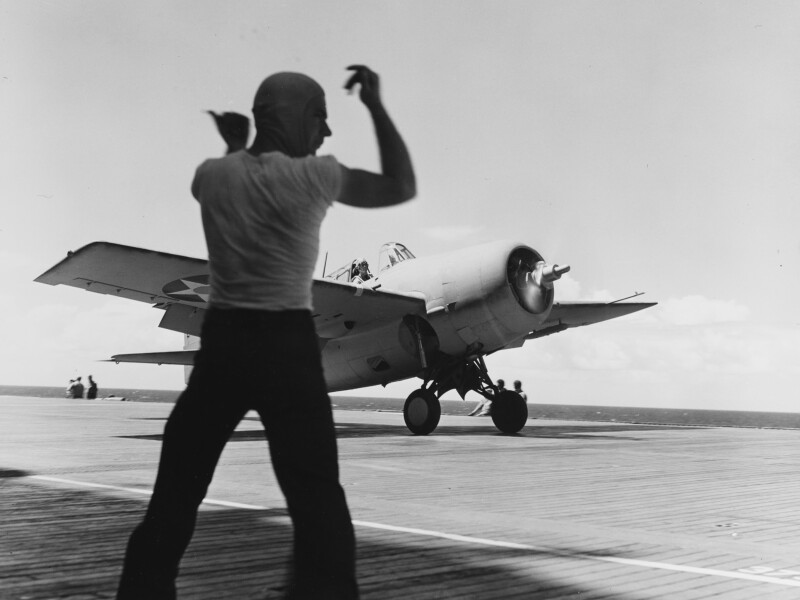
Photo #: 80-PR-1154 Grumman F4F-3 Wildcat fighter, of Fighting Squadron Three (VF-3) Prepares to take off from USS Saratoga (CV-3), circa October 1941. The plane's pilot is probably Lt. John S. Thach, VF-3 Commanding Officer. Photograph from Department of the

An unusual view taken as an F4F comes in to land aboard the carrier USS RANGER (CV-4), CIRCA 1942, as seen from a camera mounted behind the pilot.

Photo #: NH 97483 Grumman F4F-3 Wildcat fighter Photographed in 1942-43. The original print is from Rear Admiral Samuel Eliot Morison files. U.S. Naval History and Heritage Command Photograph.
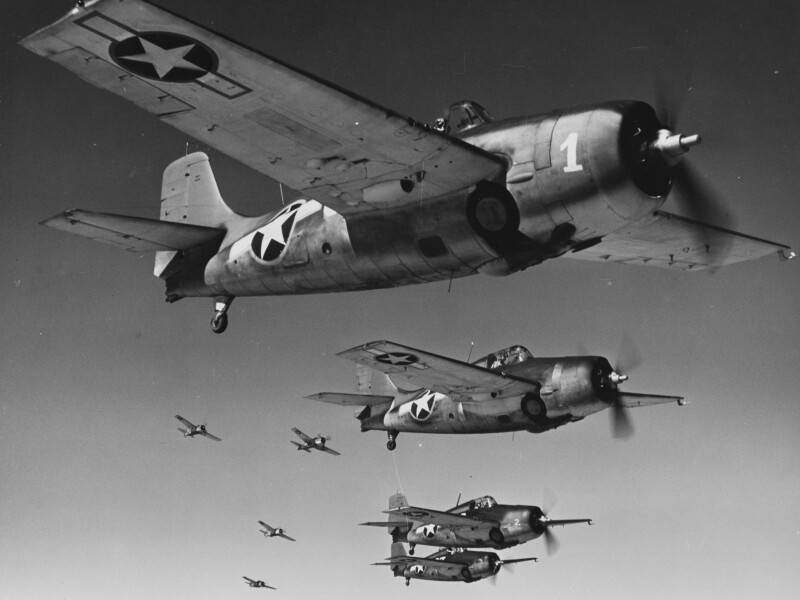
Photo #: NH 97484 Grumman F4F Wildcat fighters Fly in tactical formation of four-plane divisions, comprised of two-plane sections, circa mid-1943. The planes are wearing the red-outlined national insignia briefly employed at that time. The original caption sta

Photo #: NH 97485 Grumman F4F-3 Wildcat fighters, of Fighting Squadron Three (VF-3) On board USS Saratoga (CV-3) in early October 1941. Plane on the aircraft elevator is 3-F-15 (Bureau # 3982), piloted by Ensign Gayle Hermann. Note: Some caption details are ta
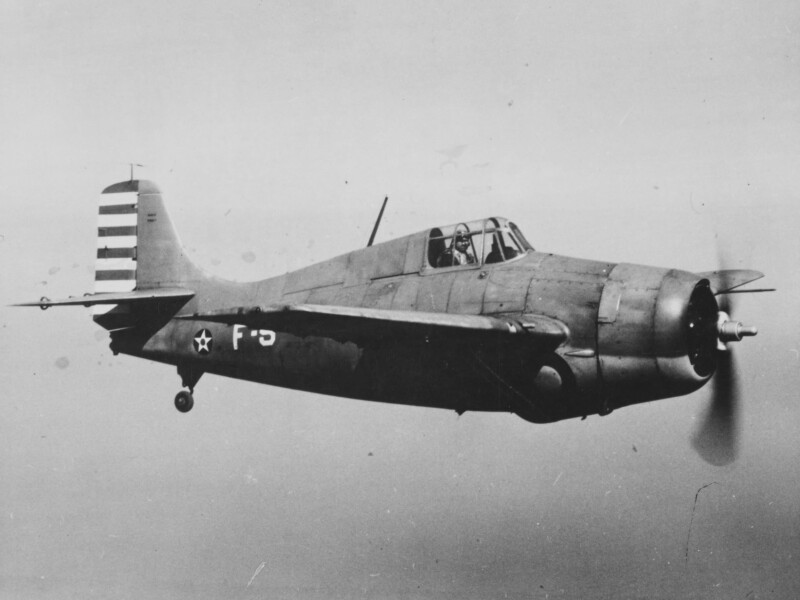
Photo #: NH 97493 Grumman F4F Wildcat fighter In flight, February 1942. Official U.S. Navy Photograph, from the collections of the Naval History and Heritage Command.
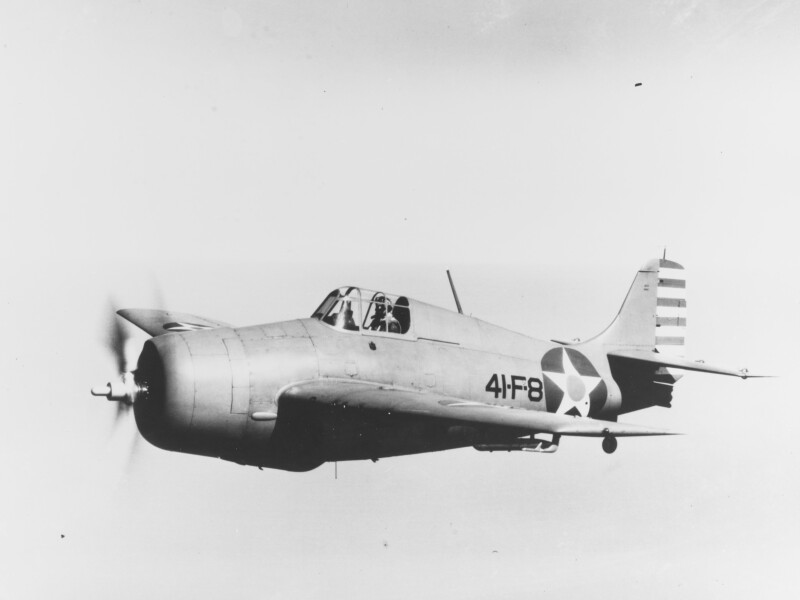
Photo #: 80-G-7026 Grumman F4F-4 Wildcat fighter, of Fighting Squadron 41 (VF-41) In flight, circa early 1942. Official U.S. Navy Photograph, now in the collections of the National Archives.

Photo #: 80-G-7725 Grumman F4F Wildcat fighter Takes off from USS Enterprise (CV-6), while she was operating in the Coral Sea area, 18 May 1942. Official U.S. Navy Photograph, now in the collections of the National Archives.
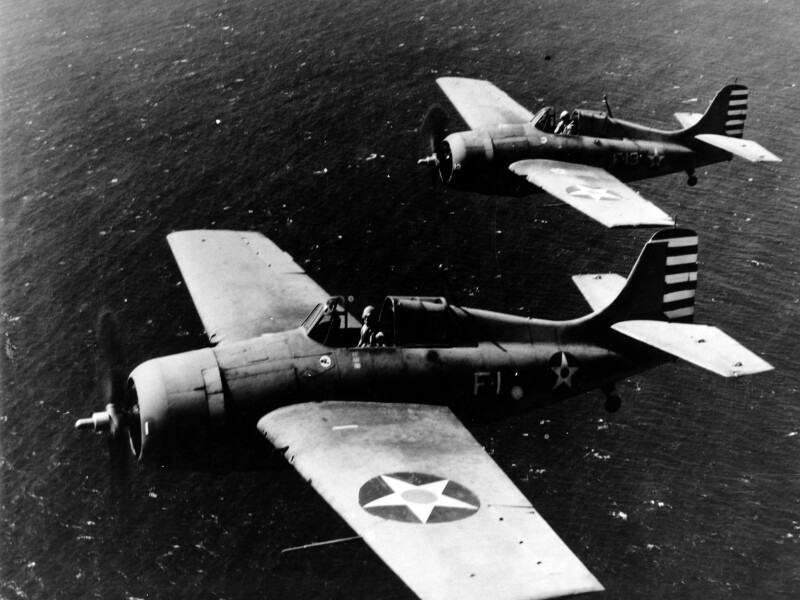
Photo #: 80-G-10613 Grumman F4F-3 Wildcat fighters, of Fighting Squadron Three (VF-3) In flight near Naval Air Station, Kaneohe, Oahu, Hawaii, 10 April 1942. The planes are Bureau # 3976 (marked F-1), flown by VF-3 Commanding Officer Lieutenant Commander John S. Thach, and Bureau # 3986, flown by Lieutenant Edward H. O'Hare. Both of these aircraft were lost while assigned to Fighting Squadron Two (VF-2) with USS Lexington (CV-2), during the Battle of Coral Sea in May 1942. Photographed by Photographer Second Class H.S. Fawcett. Official U.S. Navy Photograph, now in the collections of the National Archives.

25 August 1942, after an off center landing attempt. The pilot was Ensign G. W. Trumpeter.
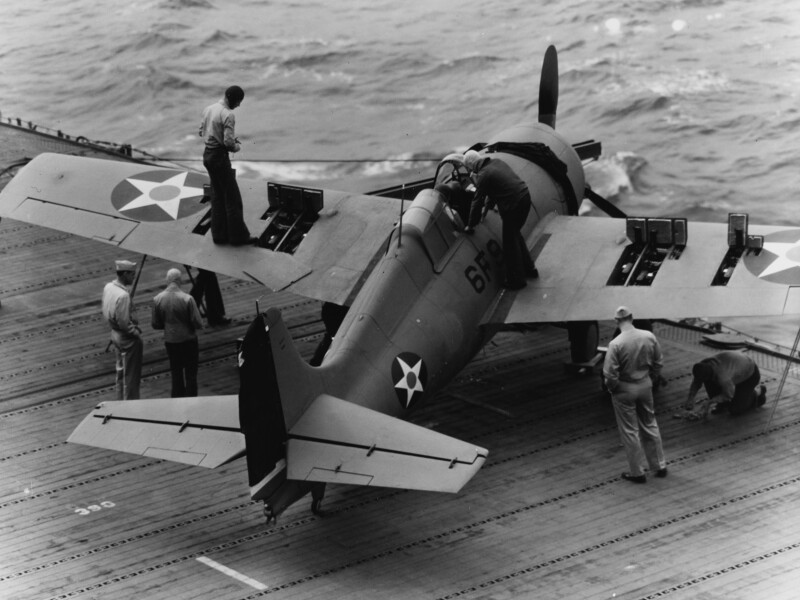
Photo #: 80-G-16511 Grumman F4F-4 Wildcat fighter, of Fighting Squadron Six (VF-6) Has its six .50 caliber machine guns tested on the flight deck of USS Enterprise (CV-6), 10 April 1942. Note open gun bays in the plane's wings and markings below the cockpit (6
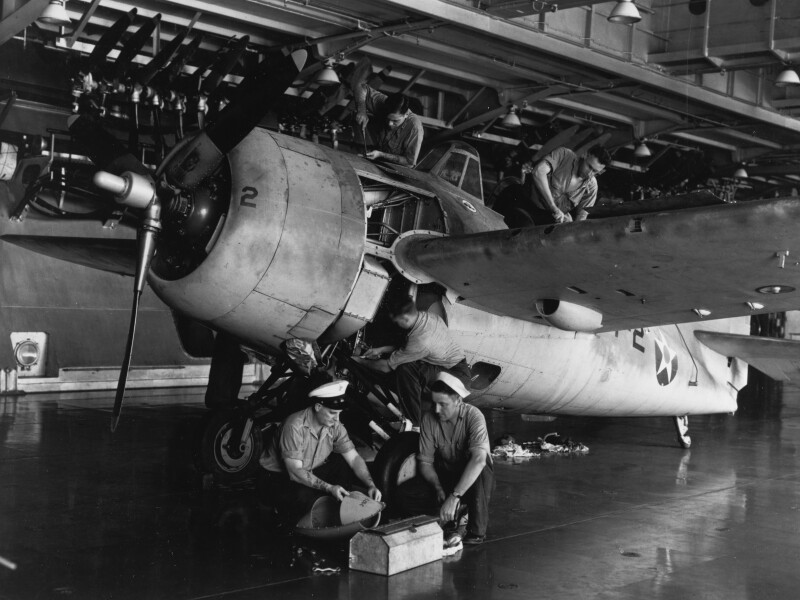
Undergoes maintenance on the hangar deck of USS Enterprise (CV-6), 28 October 1941. The plane bears the markings of Fighting Squadron Three (VF-3), including a Felix the Cat insignia under the cockpit windshield. The part held by the Chief Petty Officer in the
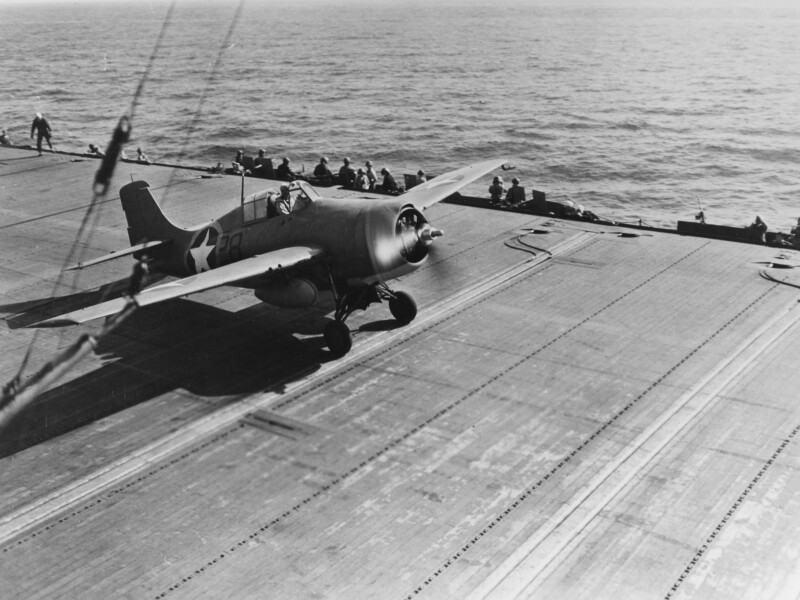
Fitted with drop tanks, of VF-4 takes off from USS RANGER (CV-4) on a photo-recon mission over French North Africa, during operation "Torch," November 1942. Note yellow surround to fuselage star, which partially obscures the fuselage number, "28."

View taken aboard USS ENTERPRISE (CV-6) showing Grumman F4F-3 Wildcats preparing for take off.
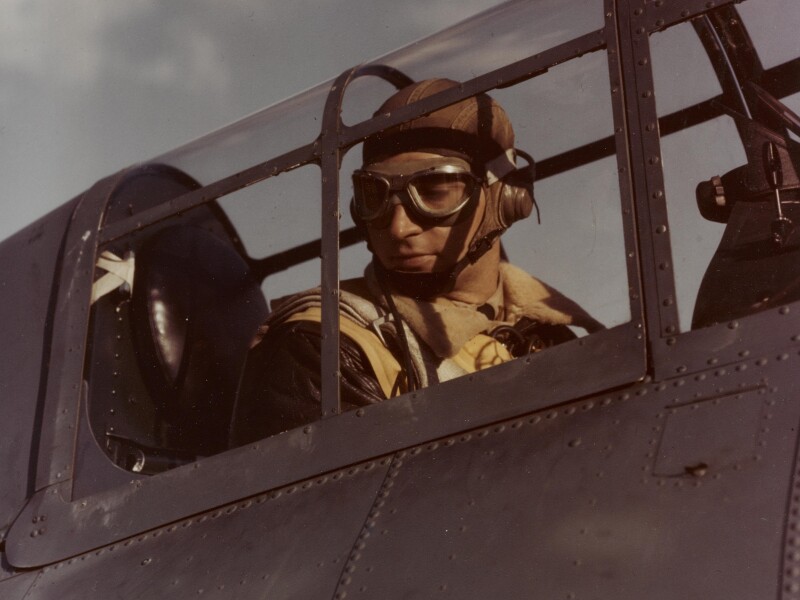
Pilot ready for take off in the plane's cockpit, during World War II. Note gunsight at extreme right.

Pilot checks life raft stowage, behind the cockpit, during World War II. In this quickly releasable hatch, the raft can be inflated immediately upon the plane hitting the water. Note use of the radio mast as a hand hold. Plane bears the markings of Fleet Air P
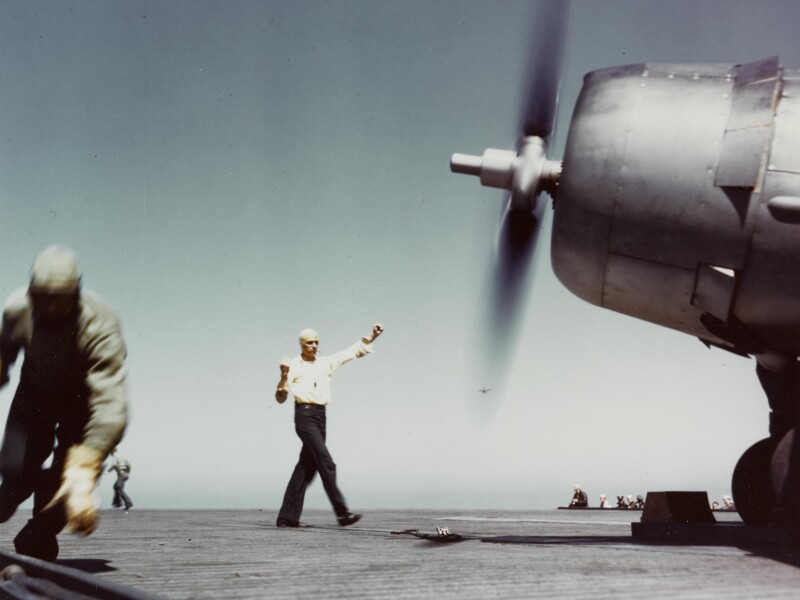
Grumman F4F "Wildcat" is positioned on the catapult, circa spring 1943. Note plane director motioning to the pilot, as catapult operators get out of the way. Another F4F is visible in the distance, beyond the plane's propeller. Photographed by Lieutenant Charl
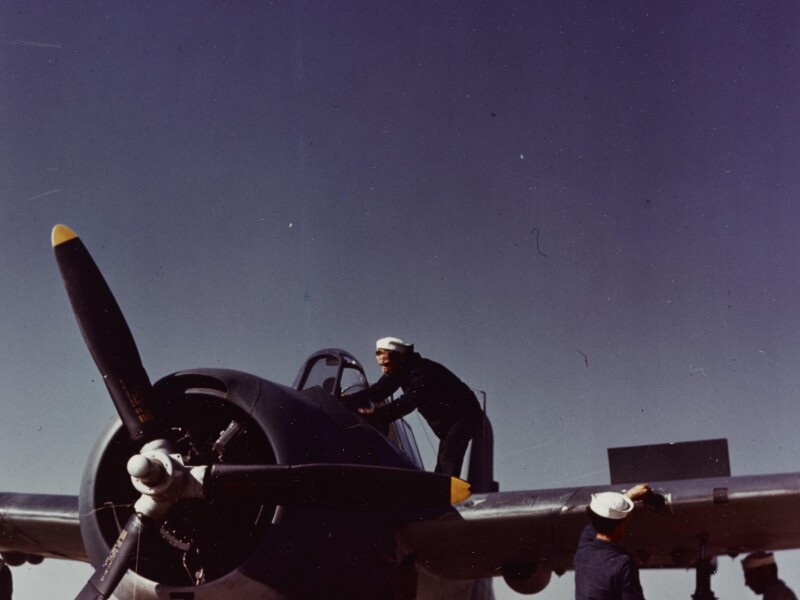
Grumman F4F-4 Wildcat fighter Receives maintenance at a Stateside air base, circa 1942-43. Official U.S. Navy Photograph, now in the collections of the National Archives.
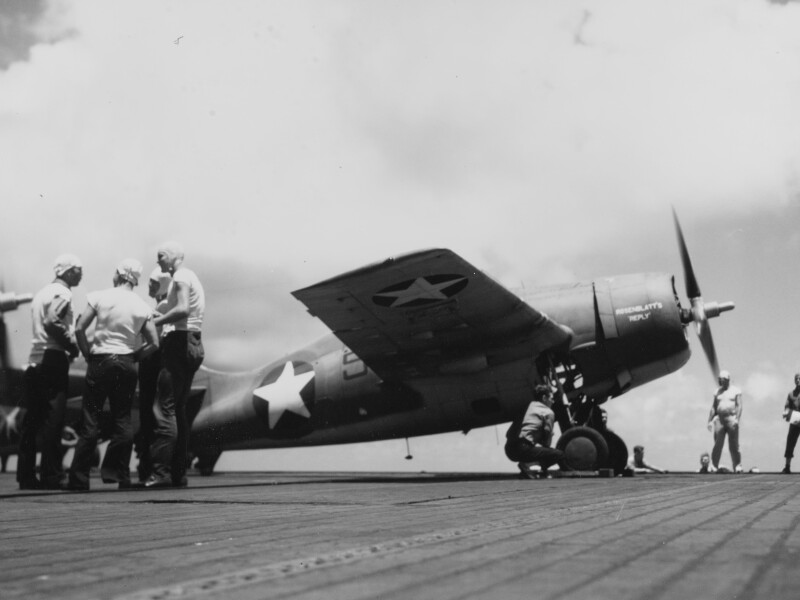
Grumman F4F-4 Wildcat fighter (nicknamed Rosenblatt's Reply) On board USS Suwanee (ACV-27), circa late 1942 or early 1943. The plane bears traces of the yellow Operation Torch marking around its national insignia. Photographed by Ensign Barrett Gallagher, USNR. Official U.S. Navy Photograph, now in the collections of the National Archives.

